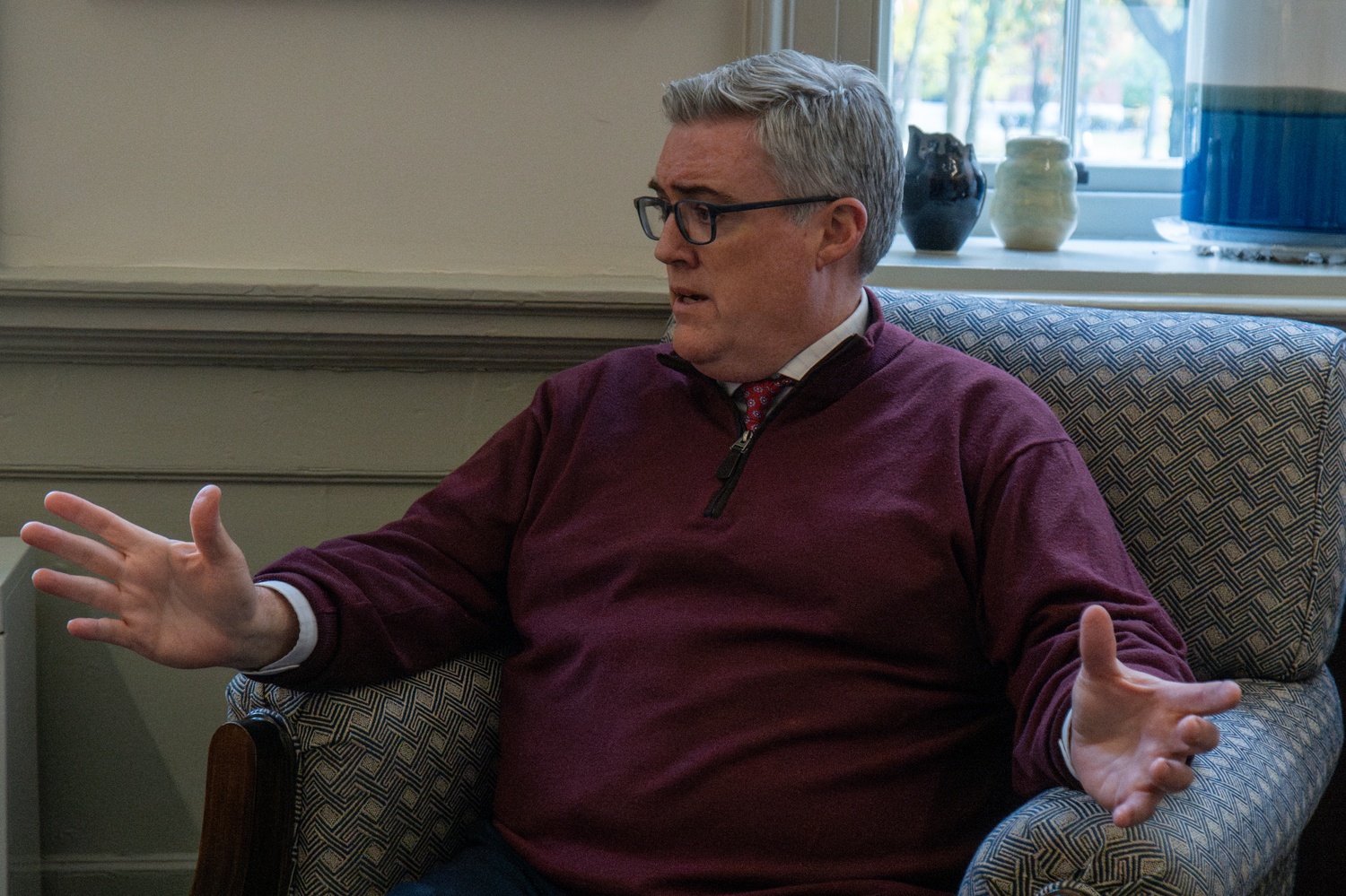
News
Summers Will Not Finish Semester of Teaching as Harvard Investigates Epstein Ties

News
Harvard College Students Report Favoring Divestment from Israel in HUA Survey

News
‘He Should Resign’: Harvard Undergrads Take Hard Line Against Summers Over Epstein Scandal

News
Harvard To Launch New Investigation Into Epstein’s Ties to Summers, Other University Affiliates

News
Harvard Students To Vote on Divestment From Israel in Inaugural HUA Election Survey
Dean of Students Dunne Says He Is Uninvolved in Conversations Around Harvard Salient Saga

Dean of Students Thomas G. Dunne said the College’s student-facing office will not intervene in the Harvard Salient’s feud between alumni and student leadership in an interview with The Crimson on Tuesday.
The conservative student publication’s alumni board had released a statement suspending its operations for an investigation into “reprehensible, abusive, and demeaning” content, but editor-in-chief Richard Y. Rodgers ’28 said the group would continue to publish.
“If any student organization wanted to be in conversation about any issue about their business or working with their alumni boards, I think we’d be open to assist where we can,” he said. “But I’ve not had any conversations with The Salient on this.”
“My sense of right now is that the organization — both the current leadership and the alumni leadership — are charting a path forward,” he said. “I don’t know what that outcome will be.”
The Salient sparked outrage among students in September for an article, written by David F.X. Army ’28, that closely mirrored language from an Adolf Hitler speech. Rodgers maintained that the paper did not intend to invoke Hitler, and the alumni board did not specifically refer to the article.
Harvard College Dean David J. Deming initially declined to review or comment on the article without formal complaints from students over Harvard rule violations. On Tuesday, Dunne, who is responsible for overseeing student organizations, said he had not received any complaints.
Harvard President Alan M. Garber had previously told The Crimson in 2024 that administrators should condemn offensive speech, which he said would still fall within the scope of their more limited institutional voice policy.
To formally accuse the Salient of violating Harvard’s anti-discrimination or bullying policies, however, complaints would be made to offices that fall under the Office of the Provost, not the DSO.
But in an unprecedented move, the Salient’s alumni leadership took their own action.
The Salient’s 10-member board of directors paused the publication’s operations to investigate “recently published articles containing reprehensible, abusive, and demeaning material,” they announced in a signed Sunday post to the website.
But on Tuesday, Rogers fired back, writing to the Salient’s mailing list that the board’s decision was “an unauthorized usurpation of power.” Rodgers further named the decision “a mutiny” in a statement to the New York Times.
Dunne said he had not read Army’s article, but he said campus publications should feel free to publish what they wish.
“I’m sure I’ve been given a copy, but I think it’s important that student groups have editorial control of their content,” he said.
“I’ve read articles about the article but not the article itself,” he said.
—Staff writer Harmony G. Fisher can be reached at harmony.fisher@thecrimson.com.
—Staff writer Darcy G Lin can be reached at darcy.lin@thecrimson.com.
Want to keep up with breaking news? Subscribe to our email newsletter.
